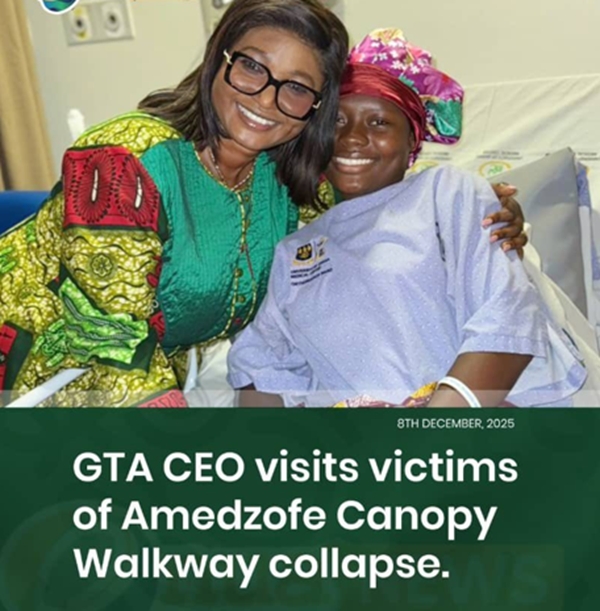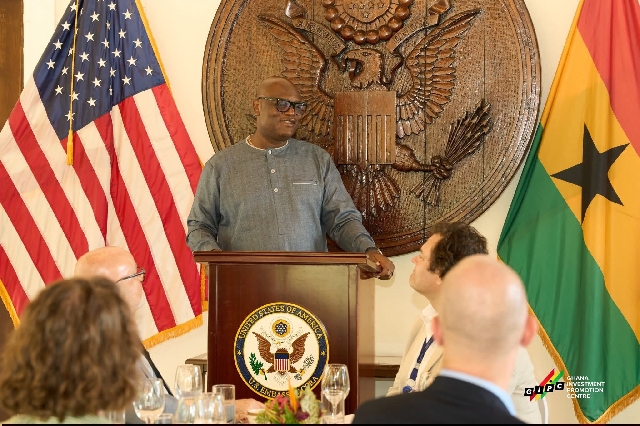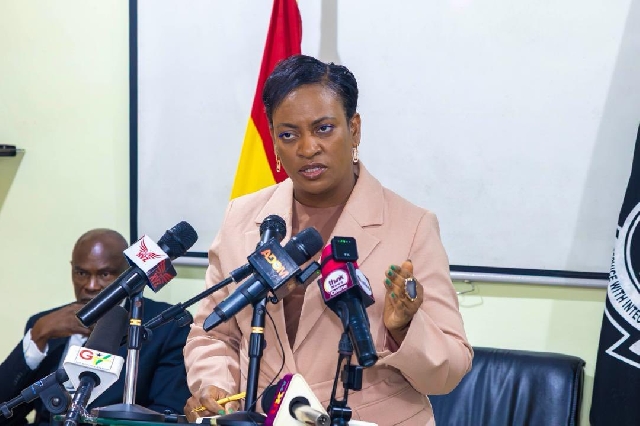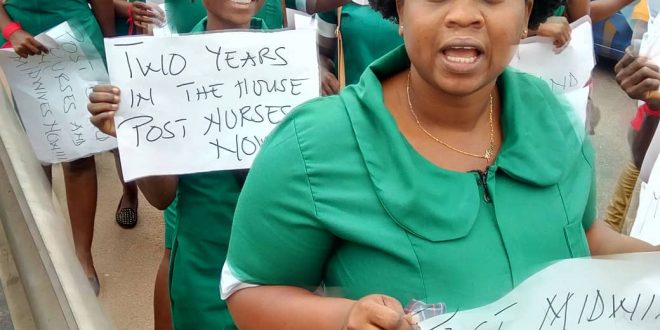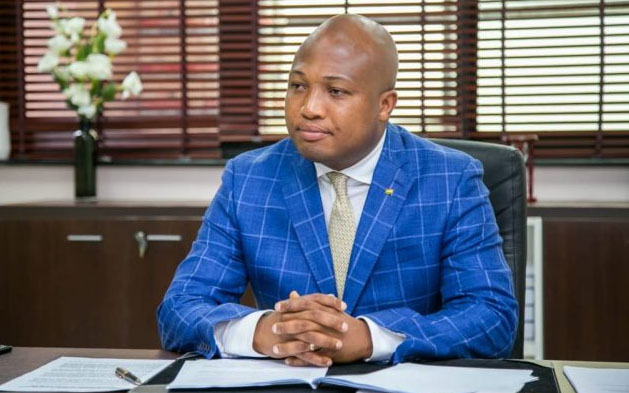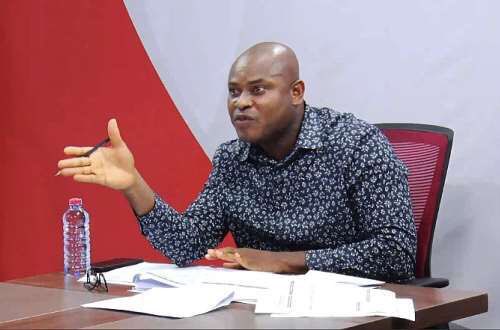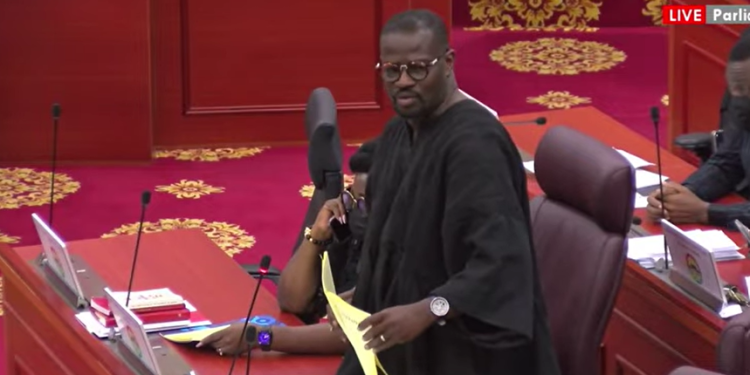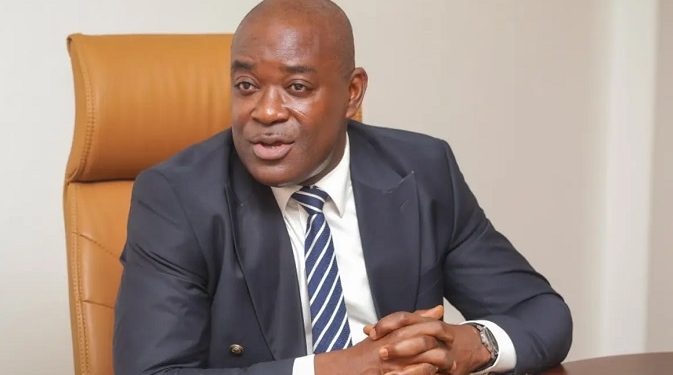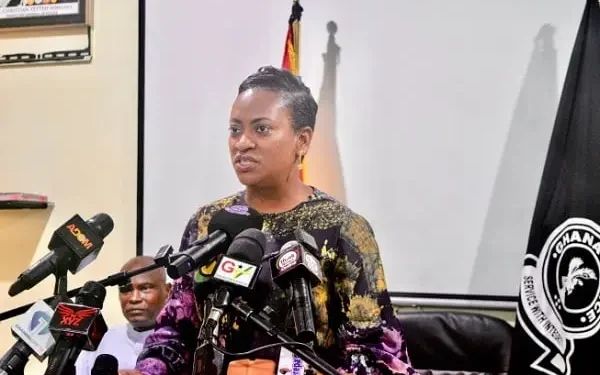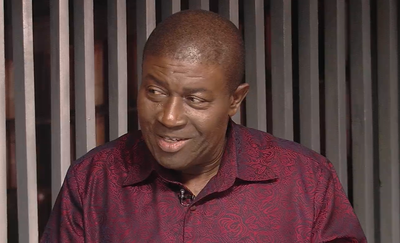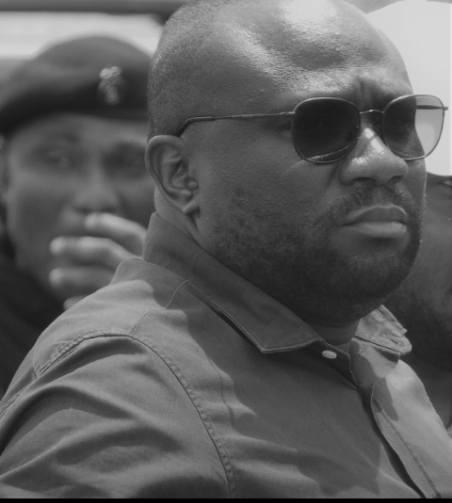The Ghana Tertiary Education Commission (GTEC) has unveiled a comprehensive national policy aimed at ending the widespread abuse, commercialisation, and improper conferment of honorary degrees by tertiary institutions across the country. Signed by GTEC Director-General Prof. Ahmed Jinapor Abdulai and issued on December 8, 2025, the policy warns that the unchecked proliferation of honorary awards—often facilitated by unaccredited bodies and questionable collaborations—is threatening academic integrity and tarnishing Ghana’s international reputation. Backed by the Education Regulatory Bodies Act, 2020 (Act 1023), the new framework establishes rigorous national standards for all public and chartered private universities. It affirms GTEC’s authority to investigate, query, or sanction institutions that violate the rules. Under the policy, unaccredited institutions, mentored colleges, and external bodies lacking approval are strictly barred from conferring honorary degrees in Ghana. GTEC stressed that any such awards will not be recognised. The Commission also prohibits universities from granting honorary degrees in exchange for donations, political favours, or material influence. Institutions that confer honorary degrees excessively or without merit will be queried and could lose their right to award such degrees. A key highlight of the directive is a ban on the misuse of honorary titles. The policy clearly states that recipients of honorary degrees cannot use the title “Dr.”, and institutions are required to issue guidance to prevent misrepresentation. Any recipient who misuses the title risks having their award withdrawn. To promote transparency, institutions must document all nomination and vetting processes, conduct integrity checks, and maintain formal registers of all honorary degrees conferred. GTEC reserves the right to withdraw any award that was improperly granted or based on fraudulent information. Describing the policy as a crucial intervention, GTEC said it is designed to “protect the integrity of Ghana’s higher education system,” prevent the commercialisation of honorary awards, and restore public confidence in academic honours. The policy is effective immediately. Source: Apexnewsgh.com
CID Probes Alleged Kidnapping of American in Accra After Viral Video
The Criminal Investigation Department (CID) of the Ghana Police Service has launched an investigation into a viral video in which American national Arianna Naomi Mackey claims she was kidnapped and robbed by five masked men purporting to be police officers conducting snap checks in Accra. According to the CID, initial inquiries revealed that the video was filmed at a hotel in Accra, where Mackey and two companions were staying. Records indicate that the group checked out of the hotel on December 5, 2025, the same day Mackey departed Ghana from Kotoka International Airport. Efforts to obtain further details from Mackey have proven difficult. She reportedly told police she was unable to provide the names of the alleged officers or the number plate of the vehicle involved. Mackey also declined to share the contact information of a friend who was with her, citing the friend’s reluctance to participate in the investigation. The CID noted that the video has since been deleted from Mackey’s social media and that attempts to reach her via WhatsApp calls and messages have been unsuccessful. Investigators are now seeking her cooperation through diplomatic channels. Chief Inspector Brigitte Babanawo, Public Relations Officer for the CID, assured the public that the Ghana Police Service takes such allegations seriously and is committed to uncovering the facts surrounding the reported incident. Source: Apexnewsgh.com
Finance Minister Reaffirms Commitment to Domestic Revenue Mobilisation During Osu Tax Centre Visit
The Minister for Finance, Dr. Cassiel Ato Forson, has reaffirmed the government’s commitment to strengthening domestic revenue mobilisation during a working visit to the Osu Tax Service Centre. There, he interacted with staff responsible for tax administration and compliance, commending their dedication to boosting the nation’s revenue collection efforts. Dr. Forson highlighted that while the government has made notable strides in expenditure control and the Bank of Ghana continues to perform strongly, the next vital step is to enhance domestic revenue. He assured the officers that his visit was meant to encourage, not interfere with, their work. “I emphasised that my visit was to encourage, not to interfere. I will not obstruct revenue collection, no matter whose ox is gored,” he stated. Expressing concern over Ghana’s frequent reliance on tax increases, Dr. Forson stressed the need to focus on strengthening compliance mechanisms and improving collection systems. “It pains me anytime we resort to higher taxes instead of widening compliance and improving collection. We cannot keep piling taxes on an already burdened taxpayer,” he said. The Finance Minister revealed that the government plans to introduce new electronic tools next year to support effective tax administration. He also pledged to personally devote about half of his working time to driving the revenue transformation agenda. Dr. Forson called for collaboration across institutions and among the public to build a fair, strong, and sustainable revenue system. “Together, we can build a fairer, stronger, and more sustainable revenue system for Ghana,” he concluded. Source: Apexnewsgh.com
NACOC Arrests Three Over 1,158kg Suspected Cocaine Shipment from Ghana to Belgium
The Narcotics Control Commission (NACOC) has apprehended three individuals believed to be directly linked to a 1,158-kilogram consignment of a substance suspected to be cocaine, which was shipped from Ghana to the Port of Antwerp in Belgium. The arrests, made on December 4, 2025, followed weeks of coordinated intelligence operations between security agencies in Ghana and their Belgian counterparts. Belgian authorities intercepted the suspected narcotics upon its arrival in Europe, making it one of the largest international drug cases traced back to Ghana this year. According to NACOC, the three suspects allegedly played central roles in preparing, documenting, and exporting the shipment, which had been disguised as legitimate cargo. Early investigations indicate that the consignment may be linked to a broader transnational drug-trafficking network operating through multiple West African ports. Security sources revealed that Belgian officials alerted NACOC after detecting anomalies in the container, prompting a swift operation that led to the suspects’ arrests in Ghana. NACOC has launched a full-scale investigation to identify additional accomplices and uncover the extent of the network behind the attempted export. The commission reiterated its dedication to tightening port surveillance and enhancing international cooperation to combat drug trafficking. It has also urged freight operators, shipping agents, and the public to report any suspicious activities as Ghana ramps up efforts to fight the trafficking of illicit substances. Source: Apexnewsgh.com
Ghana Air Force Takes Over Guard Duties at Jubilee House in Colourful Ceremony
The Ghana Air Force has officially taken over guard responsibilities at the Jubilee House from the Ghana Navy, following a vibrant guard-changing ceremony at the seat of government. The event, which marked the 46th rotation since the tradition began, was highlighted by stirring performances from both the Navy and Air Force regimental bands. With this handover, Air Force personnel will now oversee security at the Presidency for the next three months. The ceremony was attended by Vice President Her Excellency Prof. Jane Naana Opoku-Agyemang, who was joined by key government and military officials, including Chief of Staff Hon. Julius Debrah, Deputy Minister for Defence Hon. Ernest Brogya Genfi, Chief of the Defence Staff Lt. Gen. William Agyapong, Service Chiefs, and several invited dignitaries. The changing of the guard at the Jubilee House remains a cherished ceremonial tradition, symbolising discipline, unity, and the vital collaborative role of Ghana’s security services in safeguarding the nation’s highest office. Source: Apexnewsgh.com
President John Dramani Mahama to Receive Bawku Mediation Report at Jubilee House
President John Dramani Mahama is set to receive the official Bawku Mediation Report on Thursday, December 11, 2025, at a ceremony scheduled for the Jubilee House in Accra. The event marks a pivotal moment in Ghana’s ongoing efforts to achieve lasting peace and stability in Bawku and neighboring communities. The report, the result of months of intensive mediation led by the Asantehene, Otumfuo Osei Tutu II, encapsulates key recommendations and findings aimed at resolving the longstanding tensions in the region. The Asantehene has played a leading role in the peace process, working alongside local leaders and national stakeholders to foster dialogue and reconciliation. Thursday’s presentation, beginning at 10:00 a.m., will gather senior government officials, traditional rulers, members of the mediation committee, and other distinguished guests. The occasion is expected to underscore the unified commitment of state authorities, faith-based organizations, traditional institutions, and development partners to promote social harmony in northern Ghana. Among the invited institutions are the National Peace Council, the Christian Council, the Office of the National Chief Imam, the Catholic Secretariat, the United Nations Development Programme, the British High Commission, and key regional authorities such as the Ministers for the Upper East and North East Regions. Representatives of the Upper East Regional House of Chiefs and the National Security apparatus will also be present. The formal presentation of the Bawku Mediation Report is anticipated to reaffirm Ghana’s dedication to peace-building and inclusive development in conflict-prone areas. Source: Apexnewsgh.com
Former STC Boss Nana Akomea Refutes Land Sale Allegations, Blames NDC for Past Asset Disposals
Former Managing Director of the State Transport Company (STC), Nana Akomea, has dismissed allegations that he sold lands belonging to the company during his tenure, describing the claims as politically motivated and baseless. Speaking on Point Blank on Eyewitness News on Monday, December 8, 2025, Mr. Akomea categorically denied any involvement in the sale of STC assets. “I haven’t sold even a single foot of STC land. So I don’t understand why somebody would make such claims,” he insisted, emphasising that no STC property was sold while he was at the helm. Mr. Akomea argued that responsibility for the disposal of STC lands lies with the previous National Democratic Congress (NDC) administration. He alleged that around 2010, when the company was struggling financially, the government at the time approved the sale of about four acres of STC land in Takoradi to retail giant Melcom. He further claimed that the NDC-era asset sales included the Managing Director’s official bungalow at Ridge, forcing him to secure alternative accommodation during his time as MD. “They sold 4 acres at the headquarters itself to a company called BCL,” Akomea added, stressing that these transactions occurred before his administration and were not linked to his leadership. Nana Akomea maintained that the attempts to connect him to STC land sales are not only unfounded but are also intended to score political points. Source: Apexnewsgh.com
Upper West Regional Police Commander Confirms Arrest of Four Students After Wa Technical Institute Disturbances
The Upper West Regional Police Commander, DCOP Francis Yiribaare, has confirmed the arrest of four students in connection with violent disturbances at the Wa Technical Institute. In a media briefing, DCOP Yiribaare described the incident as a serious act of misconduct that resulted in significant damage to school property. The unrest, he explained, broke out when some students resisted internal disciplinary measures. What began as a routine enforcement of school rules escalated after students repeatedly ignored warnings against the use of unauthorised uniforms and mobile phones. When disciplinary action was taken, a group of students responded aggressively, defying the school’s regulations. The situation soon turned violent. Several students vandalised school property, damaging six vehicles on the compound and smashing window panes at the administration block and the multi-purpose hall. Police responded swiftly after receiving reports of the chaos. DCOP Yiribaare also noted that an investigation is underway involving the school’s domestic bursar, after several food items belonging to the institution were found in her possession. If culpability is established, he said, the case would be sent to court. In a separate development, DCOP Yiribaare provided an update on a December 5 incident at Saawie, where police officers responding to a complaint were allegedly attacked and disarmed by some youth in the area. Reinforcements later arrested nine suspects. Seven have been arraigned, while two were released after interrogation. Source: Apexnewsgh.com
NAIMOS Raises Alarm Over Interference by Chiefs and Politicians in Anti-Galamsey Fight
The National Anti-Illegal Mining Operations Secretariat (NAIMOS) has sounded the alarm over persistent interference from powerful individuals, especially chiefs and politicians, that continues to hamper Ghana’s efforts to curb illegal mining, known locally as galamsey. Speaking at a stakeholder meeting in Sekondi on Sunday, December 7, Lieutenant Colonel Joshua Satekla, Deputy Director of Operations at NAIMOS, expressed the secretariat’s unwavering commitment to tackling galamsey. However, he pointed out that interference from influential figures remains a major obstacle to success. Addressing 14 Metropolitan, Municipal, and District Chief Executives (MMDCEs) from the Western Region and two Regional Police Commanders, Lt. Col. Satekla underscored the need for strict enforcement and collaboration at identified illegal mining hotspots. He emphasized that the effectiveness of operations relies heavily on support from local authorities to uphold designated “no-go” zones. Yet, he revealed that such support is often undermined. “Every institution has challenges, and we are no exception. One of our key challenges is interference from influential people. We encounter this from politicians, chiefs, and other stakeholders in areas where we operate, and it is a big problem that must be addressed. Another critical challenge is logistics,” Lt. Col. Satekla stated. Western Regional Minister Joseph Nelson reaffirmed the government’s resolve to end illegal mining and called on all MMDCEs to support President John Dramani Mahama’s campaign to eliminate galamsey, urging unity in the fight for Ghana’s environmental future. Source: Apexnewsgh.com
Former NAFCO Boss Challenges Freezing of Properties in High Court
Former Chief Executive of the National Food and Buffer Stock Company (NAFCO), Abdul-Wahab Hanan, has filed a motion at the High Court seeking to overturn a freezing order placed on four properties linked to him. According to Hanan, the Economic and Organised Crime Office (EOCO) acted in error and wrongfully included assets in the order that he either acquired before his NAFCO appointment or does not own at all. In his affidavit, Hanan listed the affected properties named in the October 21, 2025 order: a three-bedroom house at Kpalsi, Tamale; an uncompleted storey building at Gumani, Tamale; a 0.27-acre plot at Estate Junction, Tamale; and a 0.29-acre plot at Workers College, Tamale. Hanan insists that EOCO obtained the freezing order ex parte, without giving him the opportunity to be heard, and failed to meet legal requirements under sections 33–35 of the Economic and Organised Crime Act, 2010 (Act 804). He claims that the three-bedroom house at Kpalsi was acquired in 2011 and completed in 2013, well before he joined NAFCO, and even served as a venue for his Islamic marriage ceremony, making it unrelated to any alleged wrongdoing. He further argues that EOCO wrongly attributed ownership of two properties to him: the uncompleted building at Gumani and the 0.27-acre plot at Estate Junction, which he says belongs to Al-Qarni Enterprise and was transferred to OSGAF Furniture Enterprise in 2022, prior to EOCO’s investigations. Hanan also alleges procedural violations, stating that after his arrest on June 25, 2025, EOCO detained him for two weeks and searched his homes in Accra and Tamale without a warrant, violating his right to privacy. He says he was only informed of the freezing order on November 26, 2025, when he reported to EOCO as part of his bail conditions, despite the law requiring prompt notice. Maintaining his innocence, Hanan contends that EOCO has not demonstrated that the properties are tainted or linked to criminal proceeds. He argues that the freezing order infringes his constitutional rights to property, privacy, fair hearing, and the presumption of innocence. The High Court is set to hear Hanan’s motion to review the freezing order on December 18, 2025. Source: Apexnewsgh.com



